Keynote Speeches
Have you ever been asked the question “What’s on your mind?” What was your answer?
You might mention something that just happened to you that you found perplexing or enjoyable. You might talk about something that happened in the past that you can’t stop thinking about. You might mention a project or assignment you have been working on. You might talk about some future idea or plan that you are contemplating that has fired your imagination. Whatever your answer would be, it would involve what Bill refers to as ‘self-talk’. That inner dialogue that we are having with ourselves at any given moment.
Bill says, “We all talk to ourselves. If we do it out loud, people would worry! But that discussion we have in our heads is always on-going and if it’s a healthy discussion we do okay, if it is unhealthy, then we run into trouble.”
This keynote What’s On Your Mind? is all about this self-talk that we all engage in; that constant chatter that is our ‘thinking’. It’s about how to learn what’s “really” on your mind, where it came from, and whether it is valid or not. It is about learning what is useful and what is harmful.
Robin Williams once said “Reality, what a concept!” In a deep exploration of this statement, Bill starts to unpack the neuroscience about the everyday experience we have of the life around us that constitutes our ‘reality’.
From his readings of ancient philosophies and theologies through modern psychology and interpersonal neuroscience, Bill assembles a set of accessible ideas that help each of us to better answer the question “What’s on Your Mind?” It isn’t about controlling the mind, as much as it is about learning how to work with the mind in a healthy and productive way.
Bill talks about the skills needed to ‘focus your attention on your intention’, a key phrase Bill uses to help address the mental dissipation we so often fall prey to. Bill explores such things as; the value of creativity and its dark side, the simple technique of critical thinking, nurture versus nature, and the use of deliberate perception – all are illustrated and laid out to help in our understanding of how the mind works for us or against us at any given moment.
Hot and Cold thinking, the neuroscience of mirror neurons and neural pathways, the ancient practice of Epoche’ and its modern applications, entrainment, empathy, rumination – all these ideas and more will be explored as ways of being and thinking that make our lives and the lives of those around us richer and more joyful. The neuroscience, ancient ideas and a vast number of humorous anecdotes make for a fun and informative journey towards answering the question “What’s On Your Mind?”
What would happen to your organization if you could build stronger, deeper relationships with each other and your customer?
When we hear the expression ‘talking in circles’ we often think about people talking round and round and going nowhere. Bill’s keynote Talking in Circles is not that! Rather, it is all about people talking round and round with care and empathy, and getting to the heart of things.
At one of the Talking in Circles workshops Bill was holding he sat at a table with a group of people and they did what is called a ‘go round’, which is where you ask a simple question to get people used to talking in the circle. The question was “What are your expectations of the day?” The answers were the usual, “I want to learn how to communicate better with my colleagues.”” I am interested in how storytelling can be used in our workplace.” but one of the gentlemen said, ”Actually, I’m not even sure I should be here. I think I am getting a divorce.” Everyone at the table knew each other and this revelation hit like a bombshell. What happened next was what often happens with Talking in Circles, everyone started to share what are called their ‘emotionally parallel stories’.
When you hear someone’s story the brain immediately searches for an ‘emotional parallel’ in your own life. That is a story of your own that is similar enough that you can relate their emotional world to your emotional world. Thus, understanding and compassion grows. At the end of this particular Talking in Circle session everyone felt heard and connected in a way they had not expected.
“If you don’t understand someone’s actions, you don’t know enough about their story.” is a quote from a Restorative Justice advocate which Bill uses to open his audience to the idea that stories change people.
Joseph Campbell, a true master teacher of narrative and mythology said, “People forget facts, but they remember stories.” We are truly a ‘story species’. The process of sharing stories is how we best learn and develop an interconnected understanding of our reality. Story sharing helps us to better see and relate to the world around us.
Ancient cultures from around the world have gathered people in circle to share stories and dialogue on issues of mutual importance. By Talking in Circles they have been able to create, celebrate, restore and solidify community. Gathering together and Talking in Circles is a practice for evolving healthy and productive group and tribal connection.
In his keynote Talking in Circles, Bill discusses how the need for circle dialogue has never been greater. Broken relationships, broken communities, broken societies surround us every day. As Ester Perel, a relationship expert points out, the need for deep meaningful relationship is a vital aspect of mental health. We spend so much time with our work colleagues and our customers that it is vital to our wellbeing that our relationships at work – work.
Bill also shares the significant neuroscience of interpersonal neurobiology behind how Talking in Circles works. He discusses the active entrainment that occurs when effective listening happens and how mirror neurons serve to create real empathy and compassionate action that can then easily follow. This compassion and empathy can then be shared with everyone with whom we come in contact in our daily living.
Talking in Circles offers a place to share our personal struggles, challenges, victories and questions. It is also a place to dialogue collectively about the reality we all share. The axiom, “The whole is greater than the sum of its parts” is never more true than when we are Talking in Circles.
Talking in Circles celebrates diversity, belonging and inclusion and helps nurture compassion and connection. The implications of this practice at work and in our society are vast and transformative.
What would happen if you were inspired to be your best self every day?
On his first day playing the character of Stephano, in The Tempest, Bill leap from a basket to utter his first line, but was stopped by the director. “Why is Stephano coming out of the basket at that moment?” the director asked. “Because it says in the stage directions”, was Bill’s response. “Not good enough.” Said the director, “Go back in the basket until you know Stephano’s why!” Bill went back in the basket and then after a bit of consideration emerged, “He has something important to say to Prospero.” said Bill proudly. “Good,” said the director, then added, “Motivation is everything. Every entrance. Every exit. Every word. You need to know why?”
Bill realized that if we could do that as an actor in a play, shouldn’t we also do that for the character we play in life?
That’s why Bill wrote his book “Acting Up: lessons from the theatre of life”. He did so at a time when his life was going through vast, deep and intimate changes. Of this endeavour Bill says, “I needed to figure out who this Bill Carr character that I had been playing all my life really was. So I sat down and started to explore what this Bill Carr had learned and what he had avoided learning. Who did I want Bill Carr to be going forward? What changes needed to be made? In the process, I developed a whole theory of how to stay inspired to try and Act Up! every day. How could I do better and be better living a truly authentic life? Acting Up was born of that exercise and it’s still going on.”
Acting Up! to our greatest authentic potential, in this ever changing, always challenging world, isn’t easy. Many people wait for inspiration but there are ways to find inspiration and to stay actively and consistently inspired. Acting Up: Lessons from the theatre of life shows how to do just that.
In this keynote, Bill shares research into how the brain works to create our experience of the world around and inside us. He shows ways we can use this knowledge to create an environment filled with creativity, enthusiasm, and inspiration. Bill focuses on empathy and what he calls “contagious inspiration” and discusses how nurturing our relationship with our better selves, and with others we admire and wish to emulate, can re-wire our neural pathways. Living authentically changes surviving into thriving, and tragedy into strategy.
As Bill explores the various mental and emotional mechanisms at play in the acting out of our lives. He helps people see that important moment between action and reaction where character and authenticity become a choice to be inserted and asserted. He also shows how resilience in times of change is both innate and learned, and a vital aspect of our true character.
The actor’s truth lies in the knowledge that they are performing a role and attempting to portray the deep honest reality of the character. We should be striving to do no less with our own character we are living, in our own story on our own stage. This is about living our authentic character, as it demands expression in every role we play.
Bill’s Acting Up: Lessons from the theatre of life keynote will reignite a passion and desire to find and develop inspiration and authenticity in your own life, and in the lives of those you work with and for. Bill believes that how we see the world, determines our thoughts and motivations for action, and ultimately our destiny. To see the world with an inspired mindset, determined to find and nurture joy and creativity, transforms the mundane into the amazing. Acting Up: lessons from the theatre of life leads to a richer more deeply satisfying life for you and everyone you come in contact with.
Why settle for less?
Bill’s book Acting Up: lessons from the theatre of life is available on Amazon in paperback and as an audio book read by the author.
Are you safe? Are you sure? This is no small question.
At an industrial worksite in Alberta, Bill asked to meet with people who were experienced with the worksite and the people working there. He asked them what the biggest challenge was for them when it came to safety. One older, clearly experienced worker, looked at Bill and said, ”Trying to convince the young people coming on site that people can get hurt bad here, and even die. The culture here has a lot of bravado and ego. It makes people do stupid things and it needs to change. But old habits die hard. Pardon the pun.” Bill knew this man was speaking from his lived experience and from his heart. This man was speaking about people working with an unsafe mindset that is all too pervasive in a culture focused on productivity over all else. They weren’t Seeing Through Safety Glasses and many couldn’t see the danger this veteran of the worksite spoke of.
At a job site where the walls were papered with the slogan “Safety is Job #1” Bill was shown reports which detailed a vast number of under reported “near misses”. As safety folks all know, ‘near misses’ are simply safety incidents that haven’t happened yet. Through this experience, and many more like it, Bill learned that slogans like “safety first” can be problematic. Where there are habits, biases, and unconscious workplace protocols operating unseen and unchecked they are even dangerous and the results often deadly. Safety isn’t just a slogan; it has to be a mindset, a way of seeing.
Much more than just rules and protocols, Seeing Through Safety Glasses shows ways of seeing safety as a mindset and then acting from that mindset. It is about anticipation. It is also about the individual and collective responsibility for changing our workplace to make it safer for everyone.
From mining, to oil rigs, highway driving, to government, food production, transportation, health care, volunteer organizations, to work in theatre, the principles of Seeing Through Safety Glasses remain the same. How to get into this mindset and share it are the core learnings that come from this keynote.
At its core, building a culture of safety is about building an empathic and caring community.
Safety also means being safe emotionally, socially, with mental health and cultural considerations at the forefront of a truly safe workspace. Safety from all forms of harassment and bullying are essential. Too often this area of workplace safety is overlooked. By helping people understand the neuroscience of interpersonal exchange, Bill shows how our brains can work for or against us where safety is concerned. Cognitive biases are everywhere in our society. Cognitive biases are mental shortcuts we use every day, often unaware we are even using them. One we see a lot these days is the bandwagon bias. This is where if everyone else is thinking and acting in a particular way so we might as well too. This can lead to going along with the crowd even when the crowd is wrong. Or the Anchoring Bias, where we latch on to the first bit of information we hear about a topic and are reluctant to change our minds, despite better evidence to the contrary. It’s easy to see how these biases could lead to wrong headedness. And these are just a couple of the biases Bill looks at and shows how they can be invisible dangers in a number of workplaces.
Bill maintains, “When it comes to safety – physical and emotional – all the rules in the world will not make any difference if the mindset is not right. If you aren’t Seeing Through Safety Glasses, then you and your co-workers are at risk.”
Seeing Through Safety Glasses is where people and profitability walk in lockstep. It is essential for the worker, critical for families, and profitable for companies – everybody wins!
Who do you serve?
Bill often tells the story of a waitress who showed him how Deep Service works. He had been called in to give a restaurant chain a workshop on service. As he waited in one of the restaurants to meet with the owner, he watched one of the waitresses as she went about her duties. She spoke with an older couple, and a table of twenty somethings and with Bill. At each table she seemed to work differently. When Bill asked her about these differences she said simply. “There are different needs. For the older couple I act like a good grandaughter to make them feel at ease and comfortable. For the table of twenty somethings, I sit with them and make them feel like they are at a party and that I am all for it. And you seemed lonely, like you’re missing home. So I suggested comfort food.” She knew she was right on all counts and Bill knew that here he had a story of how Deep Service works at its very best. It’s all about empathy and meeting people where they are.
Every industry is a service industry. Every life is a life of service on some level. An illumination and a celebration of this deep truth is at the core of this Deep Service keynote. Whether at work, in our community, or in our home life, we do, in fact, as Bob Dylan says “serve somebody”. At work we serve our company, our fellow employees, our clients, our community, our society and our world. At home we serve our families, our neighbourhoods, and again our society and the world. The depth and quality of this service is directly affected by how we see ourselves as being “in service”. Perception drives performance.
In his Deep Service keynote, Bill explores the meaning of the word ‘service’ and how it has been diluted in the common marketplace. We end up having to say, “good” service, “bad” service, service “over and above.” Which is why Bill coined the term ‘Deep Service’ to describe that service which is based in empathy and ultimately “love.”
Using stories from a lifetime working with companies, organizations, associations and governments, Bill illustrates the key issues involved in Deep Service. He explores the interpersonal neuropsychology behind such things as ‘mirror neurons’ and how Deep Service is infectious in a very good way. Bill looks at the role “empathy” plays in Deep Service and he contends, empathy needs to be the most important consideration in business and society in the 21st century and beyond. That’s why Deep Service also explores the idea of servant leadership in your specific context.
Bill says “We are all interconnected and ‘Deep Service’ is a way of celebrating and enhancing that interconnectedness.” In a world where it seems like conflict and feelings of alienation dominate our culture, Deep Service bridges the gap and allows for a richer experience of our own humanity and the humanity of others. Whether it is an internal customer, an external customer, or our colleagues – connecting with ‘Deep Service’ makes for a richer more productive and happier personal and work life.
This keynote is a call to the Deep Service we all so need.
How great would it be to have a keynote and or workshop designed and created specifically for you event?
Bill offers just such a thing!
Bill tells a story about a speech he was asked to give to an organization, a speech that could have gone terribly wrong. He had prepared his material from a selection of his offerings and was all set to present when one of the organizers asked to speak with him in private. He took Bill aside and said, “There is something we maybe should have told you in our discussion about today. We have just laid off about twenty percent of our workforce and we are not sure if there will be more layoffs. Rumours are rampant and a lot of people are hurting and scared. We didn’t want you to worry about that, but then I figured you should know.” They were right. Bill had a bit of time before he went on and sat down with his material. He revamped it almost entirely in order to work with what he had just heard and what he knew was the impact that that reality was having on his audience. When he got up to speak, he spoke directly to the layoffs and the fear of more. He spoke about the feelings they might be experiencing and how they could work together to cope with the changes that would likely ensue. He started with that, and also allowed this information to affect the tone of the rest of his speech. Afterwards, the organizers and many members of the audience thanked Bill for addressing the painful elephant in the room.
This was the start of Bill’s belief that every keynote needs specific attention to the audience. And as a result of this experience and others like it, Just for You was born.
For a number of years Bill has offered specific keynotes and workshops, and as his experience grew, he often took the opportunity to create new material with each and every presentation. This individual crafting not only provided value-added to each presentation but became a source of material and an additional skill set for Bill as a presenter.
Now he has taken that skill and those experiences and uses them to create Just For YOU! a keynote and workshop unique to your event.
Just For YOU! will be a keynote and/or workshop developed and created in close consultation with you the organizer of the event. Bill thoroughly researches the needs and desired outcomes for the conference or day event that you are developing. He asks questions and then deep dives into your organization and the audience and creates material that directly relates to the people gathered.
Working closely with you and people in your organization Bill makes sure he touches on the themes and specific outcomes that you are after, and he does so with wit and insight born of years of working with a vast variety of industries and organizations.
Bill starts with questions such as:
- What is the theme of your event?
- What are the immediate outcomes you are looking for?
- What are the long-term outcomes you would like to see?
- What are some of the priorities you would like addressed?
- What are the main challenges your people and your industry are facing?
- What are the sensitivities he needs to be careful of?
- Who do you serve and what are their needs?
From there, he researches your audience and using language familiar to them, he illuminates the issues and themes of the event. Bill also seeks to add previously undiscovered insights he brings to the table as an experienced outsider and keen observer of industries and organizations over the last thirty plus years. A common sentiment shared after Bill’s keynotes is “How do you know us so well. It’s like you work here!” It’s Bill’s favourite review.
Just for YOU! is just for you and your people and will add a richness of insight and humour to the experience of your event creating a unique, fun and moving experience that will be talked about and celebrated long after the event is over.
At one point in Bill’s career he was working on a script and was struggling. At that same time Bill had the good fortune to start to work with Gordon Pinsent, a legend in the Canadian Arts community. Gordon’s very first question was ”Why are you telling this particular story?” Bill’s immediate response was, “I don’t know anymore. I’m lost in the weeds here.” Gordon then explained that that often happens and then we start to work hard, but not productively. He asked Bill to remember what had inspired him to tell the story in the first place? “That’s the key, Bill,” Gordon said. “Remember what inspired you to create that story and share it. Call up what inspired you and breathe that air again. Then the work will flow.” Bill did just that and the work indeed flowed.
Gordon was one of the people who inspired Bill to create this Work Inspired keynote. To Work Inspired is to work with joy and enthusiasm. It feels timeless and your energy and vision limitless. Children at play show all the signs of inspired living. Their focus and sense of timelessness, their unlimited imaginations and the joy of play are all present when they are playing inspired. The same realities need to be operating when we seek to Work Inspired.
In this keynote, Bill shares research into how the brain works to create our experience of the world around and inside us. He shows ways we can use this knowledge to create an environment filled with joy, creativity, enthusiasm, and wild inspiration. Bill focuses on empathy and “contagious inspiration”. Bill talks about how working inspired is always a choice, no matter the circumstances. That choice involves creating an “Inspiration Loop” by surrounding ourselves with inspired people and inspiring them as they inspire us. Working with inspiration is not about what happens to us, as much as it is about what how we see and then react to what is happening to us and transforming our world from within.
Reading things that inspire, talking to people that light a fire in you, remembering what it was like when you were enthusiastic and eager to do your work, are just some of the ways to learn how to Work Inspired every day. Bill calls you to develop rituals that remind you what you are doing at its deepest levels, remembering and deeply knowing the real purpose and value you bring to every encounter at work, at home and in your community. To Work Inspired needn’t be an occasional stroke of good luck. We don’t need to wait for the muses to visit us. We can be agents of our own inspiration and inspire those around us.
Bill’s Work Inspired keynote will reignite a passion and desire to find and develop inspiration in your own life and in the lives of all with whom you come in contact.

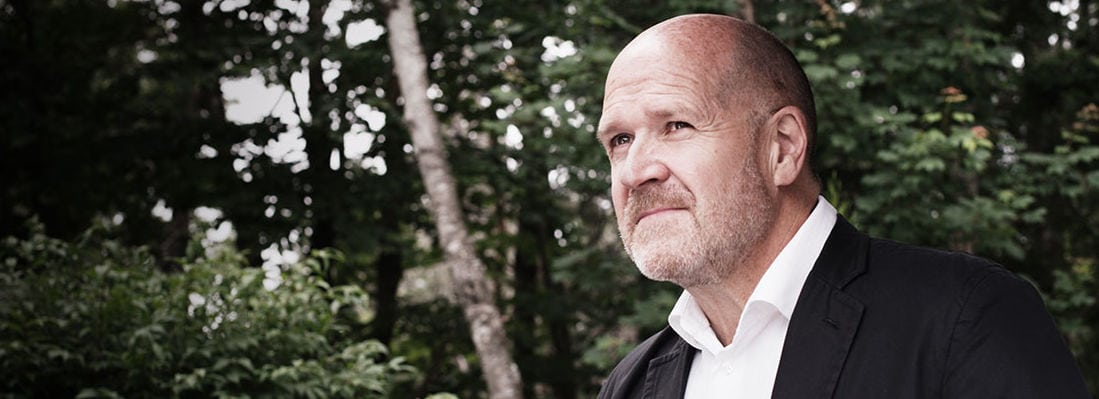
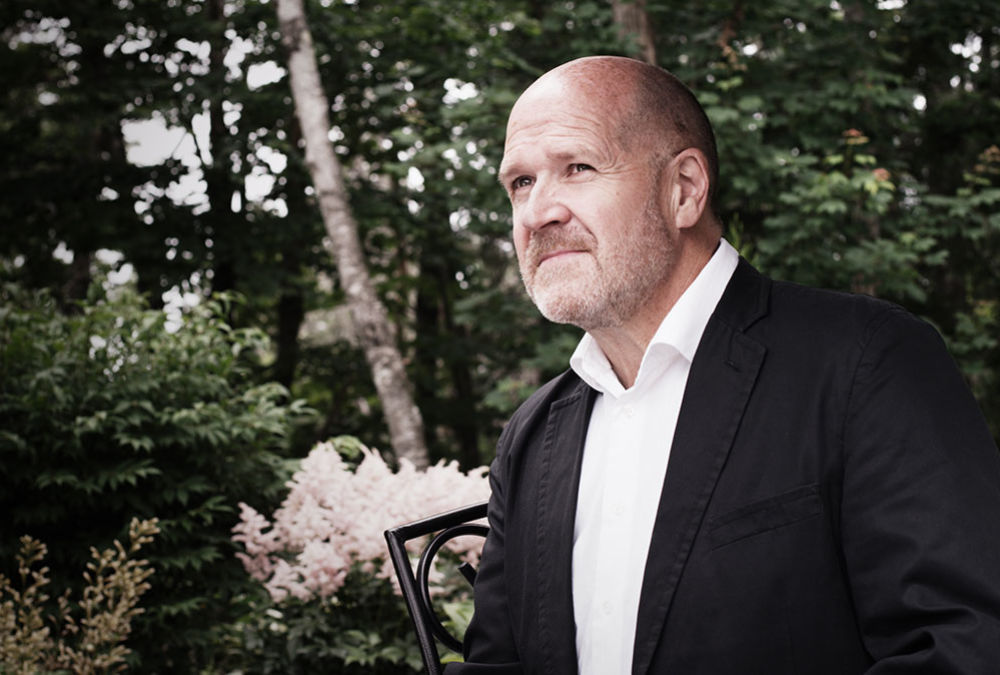
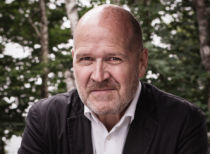
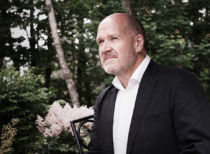
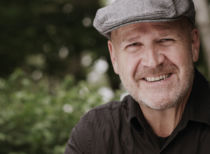


Similar Speakers 123